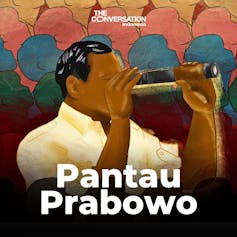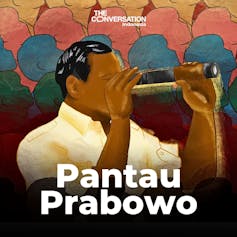Prime Minister Scott Morrison Interview with Karl Stefanovic and Ally Langdon
- Written by Scott Morrison

ALLY LANGDON: Well, the Prime Minister has dropped by to say hello, so Scott Morrison, thank you for joining us this morning.
PRIME MINISTER: Good morning, Ally.
LANGDON: Do you think you spent enough money last night?
PRIME MINISTER: Well, we spent what we needed to. And we're spending it all in this year and next year predominantly, 90 per cent. I know this figure is quite daunting. I can tell you as someone who's been involved in these budgets for many years now, it was certainly daunting to us. But it's what the situation requires. I mean this is the worst global recession we've seen since the Second World War. I mean the global economy is going to fall by 4.5 per cent and during the GFC it fell by 0.1, so this is 45 times worse. So, you know, that was the challenge. I think the Government has met that challenge and I know one thing Australians are certainly meeting the challenge.
KARL STEFANOVIC: How much does it vex you when Labor calls it the Morrison recession?
PRIME MINISTER: I think they embarrass themselves when they say that. They must be the only person who doesn't understand there's been a COVID-19 pandemic. I mean I think that shows that they're fairly clueless about what's going on. I mean COVID-19 has devastated lives and livelihoods all around the country. And I think that frankly dismisses the impact on ordinary Australians. And I think that's disappointing but frankly it just shows an embarrassing lack of understanding.
LANGDON: How optimistic are you that this is going to work because at the end of the day what we need is confidence isn't it?
PRIME MINISTER: Yeah, it is. And I think Australians as they sit around their kitchen tables this morning, whether they're thinking about where are my kids going to get a job, will they be able to get into university next year, will they get that training place, their apprentice, will the boss keep them on? Those questions are answered in last night's Budget and I think families can feel a lot more confident about their futures. I mean young people and women were the biggest impacted by this COVID-19 recession. 60 per cent of the more than 400,000 jobs that have come back already have come back for women. And so we welcome that but also there's been good jobs growth amongst young people and this will help accelerate that because if a young person doesn't get into a job after they get out of school then their risk of staying on welfare for life is rapidly increased. I learnt that when I was Social Services Minister so I need, we need, to get these young people back into work.
LANGDON: But there didn't seem to be a lot in this Budget for women specifically last night.
PRIME MINISTER: I totally disagree. I mean the women's economic statement, this is the second of our two statements. Kelly O'Dwyer did the first one. Marise Payne did this one. There's $240 million for programs like enterprising girls. Now I've had an involvement with this organisation. I mean this is about getting young women involved in how to run businesses, how to develop their entrepreneurial skills. There's investments in this Budget for women to be safe at work, which is incredibly important. To ensure also that they're getting the science, technology, engineering and math skills that are in this Budget. I mean we want to see women continue to succeed. They're enterprising and we reached record levels of female participation in the workforce, prior to this recession. And we reduced the gender pay gap to the lowest level we'd seen in this country and we want to realise those goals again.
STEFANOVIC: In your wildest imagination, or even nightmares, did you think as a conservative leader, you'd have a debt ceiling of in excess of $1 trillion.
PRIME MINISTER: Oh, of course not. And, you know, if we were sitting here this time last year, we wouldn't have envisaged what had unfolded in 2020. I think that's true for every Australian. But it's not just true here, it's true all around the world. I mean when you look at what's happening over in the United Kingdom, I mean their economy fell by almost 20 per cent in June. We fell by 7 and that was hard. Theirs has fallen by almost 20 and Australia now is just in a handful of countries, together with South Korea, Finland and Norway and the economy of Taiwan to have achieved both the balance of cushioning the blow on the economy and cushioning the blow on the health side. I'm not aware of any other countries that can speak of those results in the same terms other than the ones I've mentioned.
STEFANOVIC: There are some very big assumptions here and you're at the mercy of a couple of big factors. Victoria opening up again and getting through this crisis. I mean when have they predicted to come out of that? In the next couple of weeks? That may not happen. WA? Until maybe after the WA election? Queensland? November 1, maybe? I mean if these things don't happen it blows things out again, doesn't it?
PRIME MINISTER: Well, one thing that won't change, regardless of what the assumptions are, is the tax cuts are still coming. The job hiring credit, that's all there. The assumptions don't determine what the plan is. The assumptions are what the Government uses, and the Treasury uses, to add it all up in terms of how that impacts on the books. But the plan is what's important. Getting people back into work is what is important and the plan has three components - the first is to cushion that blow, which you've seen through JobKeeper and all of these other programs. The second is to have the recovery plan by bringing forward decisions to invest, to hire, to bring forward the tax cuts so people can keep more of what they earn and then to build the economy for the future. And that's everything from the training initiatives, the affordable energy, getting the gas from under the ground, the digital transformation programs, the deregulation. All of this, which I won't dull your program with the detail, but this is a longer term plan for Australia's economic recovery, not just today, not just tomorrow, but the future.
LANGDON: But that deficit blows out, I would assume significantly, if we don't get that vaccine by the end of next year, which is what you've based Treasury figures on.
PRIME MINISTER: Look every Budget has its assumptions. I mean the Budget assumes an iron ore price of $55 dollars.
STEFANOVIC: A vaccine is slightly different.
PRIME MINISTER: No, actually, not so much as you might think. I mean an iron ore price has always had a big impact on our budgets and we've all been conservative but the point I'm making about this is that there are many assumptions in the Budget. Now I've done many Budgets and there are swings and roundabouts. Some things realise, some things don't. And that's why we update it again with the mid-year update, then we do another budget, and the Budget is based on the best information you have at the time. But I want to be clear to Australians, vaccine or no vaccines, there's a job hiring credit. Vaccine or no vaccine, there are tax cuts. Vaccine or no vaccine, businesses will be able to invest and write off that expenditure and employ more Australians.
STEFANOVIC: You're prepared to go even more into debt though if there's no vaccine?
PRIME MINISTER: We've always demonstrated that we will do what is necessary to ensure the economy is strong and we can get people back into jobs. That's what's important now because, you know, when you get people in jobs then they have security. And that's the most important thing that we're focused on right now. Not only just the health of Australians, obviously, and the way we respond to the COVID virus itself, but we've got to get Australians back into jobs. And with 760,000 already back since the pit of that recession, then we're making good progress in Australia and it's a tribute to their resilience. But you're right Karl, I mean you've got to open up too. I mean if you're running a tourism business in Victoria, well, they need to get there safely, but they need to get there.
LANGDON: And how do we get there in regards to getting us all thinking on that same page and realising that we are in this together? I mean you have been a steady hand throughout all of this but I don't think our states have been as divided as they are right now. How do you overcome that as a Prime Minister?
PRIME MINISTER: Look, I disagree. Look, there's been a few things we've disagreed on. I mean we disagreed when schools should come back and I had a strong view on that. We've disagreed on some state borders. We've agreed on some state borders, like the New South Wales/Victorian/South Australian border between the three Premiers and myself. The states and territories will not always agree on everything, even amongst themselves. Get them talking about GST distribution between each of the states and territories and they'll go for each other, like you wouldn't know what. But, by and large, the National Cabinet has actually brought people together, regularly. We get in the room, we sort stuff out, and we keep moving forward, and we'll meet again in just under a fortnight.
STEFANOVIC: Have you spoken PM with Donald Trump since his miraculous recovery?
PRIME MINISTER: No. I've got several messages to him, wishing him and Melania well for his recovery, as many other leaders have done. I mean COVID can really knock you about, as Boris Johnson, I remember speaking to Boris not long after he returned to work and it really knocked him about. It's a serious virus. It has a fatality factor five times what we see with things like the flu and in many cases far more than that. So I wish him and Melania well and for the rest of their campaign but, you know, whichever way that election goes, one thing that is sure is that the Australia-US relationship has never been stronger.
LANGDON: And on a lighter note, how good's his handyman skills, by the way? The chicken coop at the weekend?
STEFANOVIC: It's unbelievable.
PRIME MINISTER: It was a bit of fun and the girls are looking forward to naming the chooks. But I was like any sort of bloke with instructions, it took far longer than it probably should have. I'm glad they didn't do a time-lapse photography on this thing. It would have been quite embarrassing. But you know, people are going through a rough time, and me like anyone else, you want to take your mind off things for a few hours, and do something like that and the girls are going to enjoy it.
STEFANOVIC: Well, as Joh once famously said, go and feed the chooks. You've got a bit more feeding of the chooks to go this morning, so appreciate your time PM.
PRIME MINISTER: Thanks a lot. Good to be with you. Cheers.



